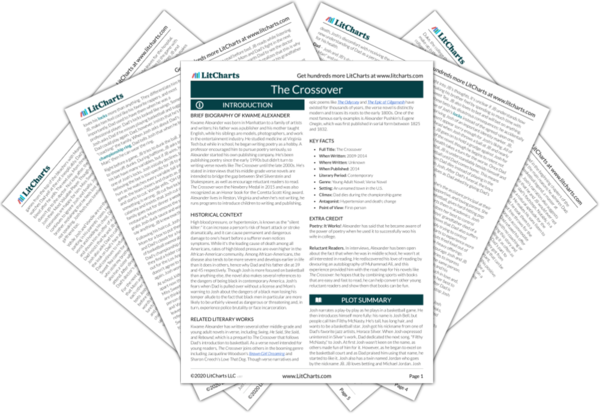Practice. To start practice, reads to the team from
The Art of War. He reads that a winning strategy isn't about planning; instead, it's about responding quickly. He leads them in footwork drills and then wind sprints. During the wind sprints Coach announces that the winner doesn't have to practice. runs hard, but is faster. He takes the lead but then lets Vondie win so he can practice.
